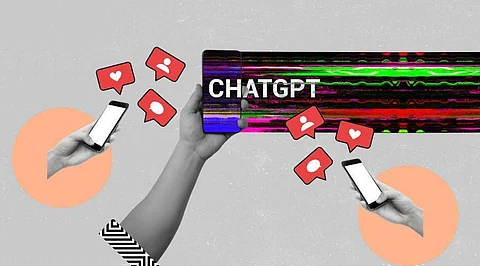

ChatGPT, a human-like AI chatbot has been taking social media by storm over the past few days. OpenAI's ChatGPT Become Popular so that the whole internet keeps talking about the technology. It is based on artificial intelligence and can answer questions, talk in natural language, and does much more.
Just in five days, it has racked up millions of users. It is developed by an AI research company OpenAI. The chat tool, which has backing from Microsoft and Elon Musk, uses the company's GPT3 (Generative Pre-Trained Transformer 3) technology to allow users to converse with the AI about almost anything.
It is one of the most powerful language processing models ever created, having been trained on a massive data set, it is capable of responding in a variety of styles and even languages.
What distinguishes it from previous AI chat tools is its ability to respond in natural-sounding language – if you didn't know it was AI, you could easily mistake it for a chat with a real human.
People have been demonstrating how it is doing their jobs or tasks for them outside of basic conversations, such as writing articles and academic papers, writing entire job applications, and even helping to write code.
It's currently free to try out if you sign up with an email and phone number, but OpenAI says it does review conversations "to improve our systems" and may use your conversations for AI training.
ChatGPT grew in popularity quickly, according to Adam Conner, vice president for technology Policy at the Center for American Progress, because it was one of the first AI technologies of its kind to be made available to the public in a way that the public could understand.
"What is different about GPT is that it is generative, that it generates outputs in ways that normal human beings understand as opposed to [the technology] just kind of outputting code or data," Conner explained.
ChatGPT, unlike other search engines like Google, can be conversational, providing human-like responses and dialogue with a user. A user can request that ChatGPT create a resignation letter, class discussion prompts, and even student tests.
ChatGPT can be thought of as a "virtual best friend," according to Jim Chilton, CTO of Cengage Group, an education technology company.
"I did something similar with a calculus example, 'generate me a calculus final exam.'" It not only generated it, but it also solved all of the problems it presented to me. It explained how it solved the calculus problem step by step, reminding me of the principles as you went through the process."
While some believe a ban is justified, perhaps temporarily, due to the widespread use of ChatGPT among students, experts and teachers argue that bans are neither useful nor equitable in the long run.
Although Conner believes the bans on ChatGPT serve a "purpose," he adds that "everyone knows it's not a universal solution."
Glantz stated that one major issue with the bans is "equity and access."
When a school prohibits ChatGPT, it can only be implemented on school computers and WiFi. While this is useful for students who do not have access to technology outside of school, many students have personal devices at home through which they can access AI technology.
"When a piece of software like ChatGPT is banned on school computers and school WiFi, it affects kids who only have access to technology when they're at school, using school technology," Glantz explained.
Glantz claims that some students have gone so far as to use a school WiFi hotspot to circumvent the ban.
Teaching students how to use ChatGPT is also important because this type of technology may be required for future jobs, so "making sure that we're giving the students those skill sets to leverage technology will be really important," Glantz said.
Manoeuvring around or with ChatGPT could be the first step in determining the relationship between schools and AI technology.
"Decisions about how to address ChatGPT and AI in schools in the future will have to be made by the company, educators, parents, and administrators," Conner says.
Join our WhatsApp Channel to get the latest news, exclusives and videos on WhatsApp
_____________
Disclaimer: Analytics Insight does not provide financial advice or guidance. Also note that the cryptocurrencies mentioned/listed on the website could potentially be scams, i.e. designed to induce you to invest financial resources that may be lost forever and not be recoverable once investments are made. You are responsible for conducting your own research (DYOR) before making any investments. Read more here.
